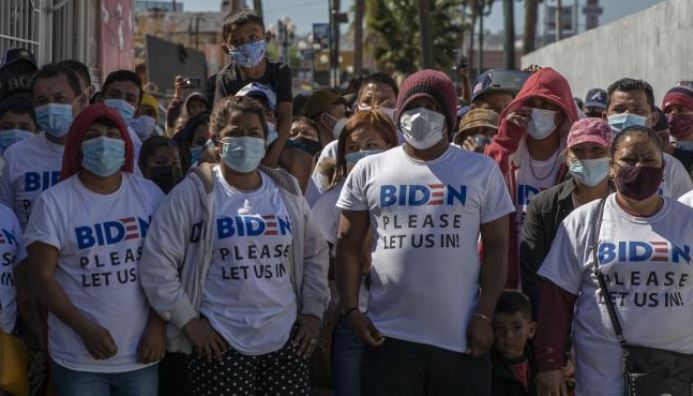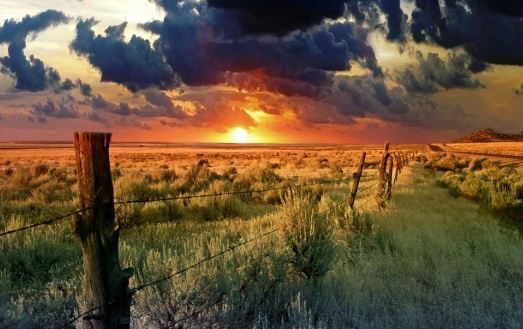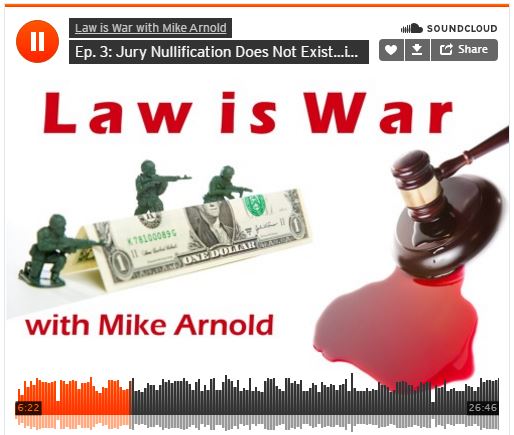A State of Fear
The Parker family tragedy is repeating itself at the Texas border 180 years later

By Bethany Blankley, as published in the Winter 2022 issue of RANGE magazine
“With these remarks, I submit the following
pages to the perusal of a generous public, feeling
assured that before they are published, the hand
that penned them will be cold in death.”
SO WROTE TEXAS PIONEER RACHEL PARKER
PLUMMER AFTER BEING KIDNAPPED BY THE
COMANCHES IN AN EXPOSÉ PUBLISHED IN 1838
Today, Texas ranchers and landowners living in border towns are expressing a similar sentiment. Many worry that if nothing changes,they don’t think they’ll be alive by the end of the year. While there are significant differences between what happened to Rachel and her family and what is happening to Texans living on the border, the underlying principle is the same: a land left undefended will fall to its enemies.
Within months of the Biden administration violating immigration laws passed by Congress, an unprecedented wave of criminal activity swept through the southern border. More than 1.2 million people were apprehended entering the United States illegally between January and September 2021, bringing with them cartel violence, human and
drug smuggling, murder and sex crimes. Another several hundred thousand are estimated to have entered illegally over the same time period who evaded capture.
By year’s end, the U.S. is expected to have absorbed roughly 2.5 million known illegals from more than 160 countries, most of whom will be enrolled in federal welfare programs putting taxpayers further into debt. This year alone, the Texas Legislature allocated about $3 billion to border security efforts.
1833: The Settlers
Unlike the illegals entering Texas today, pioneers James and John Parker left Crawford County, Ill., in 1833 to settle a church community and build a home for future generations. They purchased a land grant for a plot in what is now Groesbeck, Texas, located just east of Waco. Within a year of their arrival, Silas, James and Benjamin Parker built Fort
Parker in the same location where its reconstructed fort stands today. Built with split cedar, the logs establishing the walls were buried in the ground three feet deep, extending another 12 feet high. Two-story blockhouses towered on opposite corners of the fort, with openings in the floor and walls to position guns.

By 1834, the fort was finished, and the rest of the family moved in. They cleared fields to farm, often struggling through harsh weather. On April 21, 1836, Texas gained independence from Mexico and for once it seemed as if life would get easier.
But on the morning of May 19, 1836, most of the men weren’t in the fort manning their posts. The elderly, women and children were inside, unarmed. Comanche, Kiowa and Kichais Indians rode up holding a white flag and asked for food, a place to camp, and directions to water—even though they were wet from having just crossed the Navasota River. When 48-year-old Benjamin Parker went out to meet them, he was unarmed, alone, and on foot. He offered them food but was met with a lance through his chest and the Indians came right through the front gate.
Rachel fled out the back of the fort holding her baby, along with her 78-year-old uncle, John Parker, the patriarch, and his wife, Sallie, her sister, Sarah, and a few others. Most didn’t make it. Rachel and her son were caught. Silas
and three other men were scalped. John Parker was scalped and mutilated. Granny Parker was lanced and raped. In less than an hour and a half five men were killed, two women were wounded, and two women and three children were kidnapped, including Rachel and her baby, and her cousin, nine-year-old Cynthia Ann Parker, the most famous kidnapped Texan of all time.
Perhaps the Parkers had developed a false sense of security, were oblivious to the danger around them, or had become complacent. Whatever the reason, their well-fortified stockade was left defenseless and the majority
perished.
We know what happened because Rachel described it in “Racheal [sic] Plummer’s ‘Narrative of Twenty-one Months Servitude as a Prisoner Among the Comanchee [sic] Indians,’” which sent shockwaves through the nation.
While one of excruciating tragedy, Rachel’s story is also one of true grit and perseverance. It represents a pioneering spirit still evident among Texans today who will not back down from a fight. Rachel was kidnapped, brutally beaten, raped, starved, burned and tortured by her Comanche captors. Her first baby was stomped on and killed
and the second she was also be killed. The Comanches later sold her to Comancheros in the high plains of Colorado, and they brought her to Sante Fe, N.M., to be ransomed.

A wealthy couple known for purchasing kidnapped white women paid her ransom. They also raised money to hire someone to bring her to Texas. After traveling from Texas across modern-day Oklahoma, to Colorado and then to New Mexico, with a possible end in sight, the money they raised to take her home was stolen. Then a Pueblo Indian uprising occurred, resulting in the beheading of the Santa Fe governor and all hell broke loose. Rachel then fled with her rescuers to Missouri on a two-month journey right back into Comanche territory.
Several thousand miles after her saga began, she made it to her father’s home in Huntsville, Texas, on Feb. 19, 1838. Suffering from severe health problems, she died one month later, at age 20. James Parker had not been at the fort when his daughter was kidnapped and spent most of his time thereafter searching for her and his niece, Cynthia Ann.
While in captivity, Cynthia Ann wed a Comanche chief, and one of her sons, Quanah, became the last and most powerful Comanche chief in history. Their story is told in many newspaper articles, journals and books. An exceptional account is “Empire of the Summer Moon” by S.C. Gwynne. Ultimately, Quanah would be hunted by several hundred Union soldiers aided by Indian scouts who hated the Comanches. Facing starvation or surrender, Quanah and those left in his tribe were captured by the Union Army and forcibly marched from Palo Duro Canyon in northwest Texas to Fort Sill, Okla., in 1875, effectively ending the reign of the Comanches in North America.
Gwynne writes of Rachel’s plight: “It is ironic that, after all she had suffered and the thousands of miles she had traveled, her death was caused, indirectly, by her own father in what ought to have been the safety of her own
home.”
One would hope that, as pastors, John and James Parker would have known Jesus’ instruction in Luke 11:21: “When a strong man, fully armed, guards his own house, his possessions are undisturbed.” Meaning, self defense and protection of one’s family and home is a righteous and moral duty. Regardless, they learned what it meant the hard way.
2021: Homeland Under Invasion
Unlike the Parkers, most living around the border are doing their best to defend their families and the land that has been in their families for generations. But they are being overrun by numerous criminals who far outnumber and outgun them. Worse still, the criminals are emboldened by those in the White House, members of Congress, federal employees and contractors, the Mexican government and cartels.
The same false flag ploy used by the Comanches in 1836—request for aid—is being used today by bad actors in Washington, D.C., and globalist organizations to destroy more than one individual family’s fort. Within months, an unmitigated disaster began spreading throughout Texas and the United States.
Texans and Americans living in major cities overrun by unprecedented crime are bearing the brunt of the warning of Proverbs 29:2: “When the righteous are in authority, the people rejoice; But when a wicked man rules, the people groan.” In July, an illegal alien released on bail fatally stabbed a man in a Las Cruces, N.M., park, beheaded him and kicked the head around like a soccer ball. Also in July, a Minneapolis woman was beheaded in broad daylight by an illegal alien who authorities had tried to deport twice. In New Jersey, a star high school track athlete was murdered by an illegal alien. Within months of the border opening, people throughout the United States experienced the consequences of lawlessness. These are but a few of many examples.

Accelerating crime is continuing. In the Del Rio, Texas, Border Patrol agents reported a 1,400 percent increase in the number of sex offenders apprehended in the first six months of this year compared to the same time period last year.
Along the entire southern border, over a 10-month period ending July 31, 2021, Border Patrol agents arrested 8,691 known criminals who committed 12,685 crimes in the United States, according to federal data. Many are registered sex offenders who were previously convicted and served time in U.S. prisons. They were released and deported only to reenter the U.S. again illegally.
These apprehensions, agents estimate, represent 10 percent of those they know about. They also exclude those taken into custody by state law enforcement agents. Those apprehended have outstanding warrants for a wide range of offenses, including homicide, escape, money laundering, robbery, narcotics distribution, sexual child abuse, fraud and larceny, among others.
Knowing that the majority of criminals are evading capture, border residents are rightly terrified. One young mother living on a ranch in Brackettville with her three young daughters, says she’s worried about their safety because men cross their land and come right up to their home. One man rushed at her from the brush; two men tried breaking
in on two separate occasions while she and her family were inside; four showed up wearing hoods demanding things. She says, “This all occurs in a typical week.”
Her neighbor adds: “We have had large groups of single men dressed in fatigues coming through and Border Patrol has nobody to send because they are overwhelmed and distracted by cartels sending large numbers of women and children and family units across the river in Del Rio. The men charge their cell phones in our barns, go into our hunting lodges, which we keep unlocked so they don’t break the windows, and appear to be armed based on what we see from our live camera recordings.”

And there are countless stories just like these stretching across Texas’ 1,254-mile border with Mexico.
Today, the Parker family tragedy is being repeated on a much larger scale because the border has been intentionally opened to criminals. But today, there is no Ulysses S. Grant in the White House. There is no army coming. Texans on the border, however, are determined to survive and defend their land and their families until their last breaths.
Bethany Blankley has worked in politics and media for more than 20 years on Capitol Hill and in several states. Her articles are syndicated through The Center Square newswire. She also writes and produces video commentary for Just The News in Washington, D.C. She is proudly half-Texan and half-Yankee.





SSS, seems rather drastic. It’s all You can do now. Unfortunate but True.